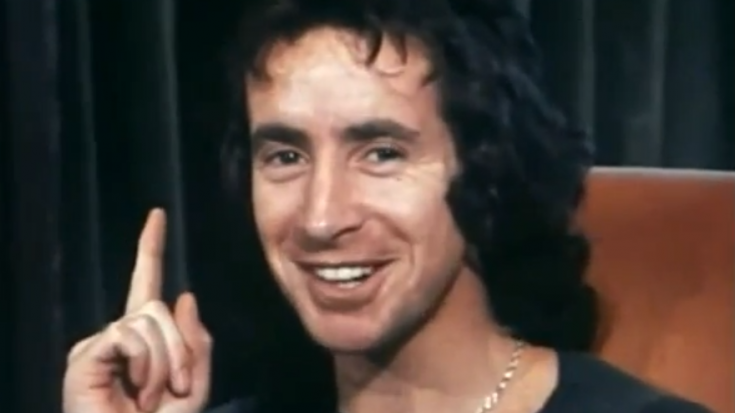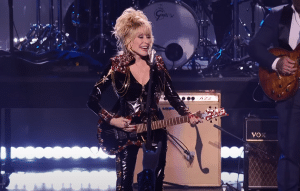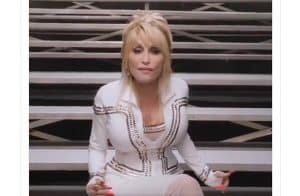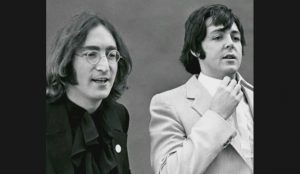We Can’t Believe How Bon Scott’s Look Evolved

Bon Scott in an interview - sghworldwide / Youtube
Bon Scott, the firebrand frontman of AC/DC, etched his name onto rock history in fiery ink. Yet, his story isn’t just one of stadium-rattling riffs and electrifying live shows. It’s a tale of raw talent, unwavering spirit, and a tragic fall that left a void forever etched in the heart of rock and roll.
From his early days in Perth pubs, where his bluesy growl cut through the haze of beer and smoke, Scott possessed a magnetic pull. With The Valentines, he tasted national fame, his husky vocals and unhinged stage presence leaving audiences breathless. It was a potent brew, simmering until 1974, when fate tossed him onto the furnace of AC/DC.
With Scott at the helm, AC/DC transformed. His audacious energy and devil-may-care attitude collided with Angus Young’s blistering riffs, igniting a musical inferno. “T.N.T.” detonated, followed by “Dirty Deeds Done Dirt Cheap” and “Highway to Hell”, anthems for a generation yearning for freedom and a dash of mischief. Every note thrummed with Scott’s rebellious spirit, his live performances a whirlwind of sweat, ripped jeans, and unbridled passion.
But amidst the thunderous applause and sold-out stadiums, shadows lurked. The demons that fueled his art gnawed at the edges of his life. In 1980, just as AC/DC stood poised for global domination, the curtain fell. Scott’s voice, forever young and rebellious, was silenced. His passing was a crushing blow, a void the music world still feels today.
Young “Bonnie Scotland” and his rock and roll spirit
Bon Scott’s story didn’t start with stadiums and leather, but in Forfar, Scotland, on July 9th, 1946. The fighting spirit wasn’t just his, it sang in his blood, an echo of generations gone by. Strong-willed Scots, unwavering supporters of Robert the Bruce, the motto “Amo” (I Love) etched into their very beings.
Music, though, flowed through his veins in a different way. It danced to the beat of his father’s pipe band, resonated in the rhythmic drumming of spoons on a breadboard. Wanderlust, too, sprouted early, taking root when the family uprooted themselves for the shores of Australia, mirroring the Young family’s journey years later.
School became a stage for his drumming prowess, Melbourne streets echoed with his rhythmic steps, and a new nickname, “Bonnie Scotland”, stuck, begrudgingly accepted like a second skin. The sporty, music-loving kid, a five-time under-17 marching drum champion, traded Chuck Berry and Little Richard for his own voice, much to his mother’s dismay. But the rock ‘n’ roll spirit was already stirring, waiting to break free.
In these snapshots of pre-fame Bon, we see not just a rock legend in the making, but a human being shaped by family, history, and a burning love for music, waiting for the right moment to unleash his unique song to the world.
https://twitter.com/AustraliaPossum/status/1075352805005639680
From a juvenile delinquent to a rockin’ rebel
Bon’s teenage years in Australia were a whirlwind of rebellion and rock ‘n’ roll dreams. Leaving school at 15, he dove headfirst into the nightlife, jiving with his girlfriend Maureen, diving into cigarettes, booze, and eventually hard drugs. He ran with street gangs, becoming their toughest member and earning a reputation for recklessness. Jobs were just means to an end, all fueled by a singular ambition: “Be a singer in a rock ‘n’ roll band.”
He pushed boundaries with an edgy ear piercing and an audacious lower-belly tattoo, “Death Before Dishonour”. A violent temper landed him in a brutal maximum-security prison, where “Jailbreak” might well have been inspired. The year behind bars hardened him, yet solidified his musical resolve.
On release, music became his lifeline. With The Spektors, he took the unusual step of a drumming vocalist, belting out The Kinks’ “You Really Got Me” with a raw passion that set him apart. It was at a Spektors gig that he met Maria, a beautiful blonde who witnessed his softer side – a man who, surprisingly, never swore or drank in her presence.
Bon’s path was a chaotic mix of violence, vulnerability, and unwavering musical desire. Here, we glimpse not just a future rock legend, but a young man wrestling with demons and dreams, carving his own path towards the stage – a path paved with leather jackets, tattoos, and an unyielding hunger for rock and roll.
The rise and fall of The Valentines
Bon’s musical journey took an unexpected turn when The Spektors merged with The Winstons, birthing The Valentines. This dynamic duo, Bon the cheeky sidekick to Vince’s straight-laced hunk, belted out pop-soul covers in coordinated suits, and staged wild pyrotechnic shows. They tasted regional success, but craved more.
Their big break came with songs penned by Aussie rock icons The Easybeats. Relocating to music hub Melbourne, Bon wrote to his girlfriend Maria, yearning for their shared future, which quickly faded into the haze of his vibrant nightlife. Vince summed up The Vallies’ charm: “I’m more popular than Bon. But he’s a far better singer than I’ll ever be. In fact, I think he’s the most underrated singer in Australia.”
However, Bon grew restless with their “cabaret act.” He’d crash old mate Billy Thorpe’s shows, unleashing raw rock anthems like “Whole Lotta Love”, eyes set on bigger dreams. “I’m going to make it,” he’d declare, fueled by ambition and occasional highs.
The Vallies’ public marijuana bust and subsequent radio ban on Bon’s ballad “Juliette” soured the atmosphere. Disenchanted and frustrated, even upbeat Vince called it quits. The Valentines, once a beacon of pop-soul, were extinguished, leaving Bon to forge a new path, his rebellious spirit simmering beneath the ashes.
The rebel tried his hands in folk-rock
Despite his age, Bon refused to accept defeat. Seeking a fresh start, he ditched Melbourne for the hippie haven of the Adelaide hills, hoping to “get his head together.” But for Bon, peace never lasted long.
Joining folk-rock group Fraternity, he traded leather jackets for beards and recorders, yearning for artistic respect beyond “arse shaking”. Fraternity offered a glimpse of a quieter Bon, seeking musical legitimacy.
However, Bon’s rebellious spirit couldn’t be buried under hippie robes. He still possessed the mischievous glint in his eyes, puncturing the utopian myth of acid culture with his hearty appetite for meat. Fraternity enjoyed some regional success, even venturing to London with a motley crew in tow. Bon, newly married to his sweetheart Irene, saw the trip as a romantic adventure.
Irene’s first encounter with Bon, however, painted a different picture. Bare-chested, boisterous, and surrounded by women, his initial charm hid a wildness that hinted at the turbulence to come. The idyllic London honeymoon was merely a prelude to the next whirlwind chapter in Bon’s ever-unpredictable journey.
His Fraternity failed and his life continued to spiral down
In London, Bon and Irene faced the harsh realities of life under tight finances and dwindling musical prospects. His wild spirit remained undimmed, earning him the nickname “Road Test Ronnie” for his willingness to sample any drug that crossed his path. Fraternity, their dreams dwindling, even changed their name to Fang in a vain attempt to recapture the spark.
But fate had other plans. Witnessing Brian Johnson’s electrifying performance with Geordie, Bon felt a glimmer of the future he craved. Soon, Fraternity/Fang disbanded, returning to Australia with Bon at a crossroads. Frustration with his stalled career and mounting tensions with Irene pushed him toward a dark spiral.
One chaotic night, fueled by alcohol and escalating arguments, Bon culminated his reckless tendencies by crashing his motorbike into a car. The accident left him hospitalized, nearly claiming his life and fracturing his marriage beyond repair. Recovering on crutches, his musical path seemed shrouded in uncertainty. It was in this precarious moment that destiny finally intervened, leading him to the band that would forever enshrine him in rock legend: AC/DC.
However, Bon’s first encounter with his future bandmates wasn’t exactly smooth sailing. His boisterous, crass demeanor initially rubbed some the wrong way. Yet, beneath the rough exterior, Bon’s charm and genuine charisma shone through, leaving an indelible impression on those who dared to look beyond the surface.
AC/DC and the long-awaited success
The years that followed are now a well-known part of the AC/DC story. With Bon’s arrival, the band had a more grounded image, remarkable storytelling lyrics, and a voice that was distinctly distinctive and evocative of Paul Rodgers and the Artful Dodger as he replaced original vocalist Dave Evans.
There have been recounts of AC/DC’s ascent to fame in their own country, their subsequent conquest of Britain, and their eventual, if difficult, breakthrough in America with the legendary album “Highway To Hell”. The story ends with Bon Scott’s exhausted corpse left to die in a vehicle seat—an awful conclusion with a person he hardly knew.
Although these tales have been told, the real truth has rarely surfaced from its shadowy existence, as shown by the many contradictory aspects of Bon Scott’s life and character that even baffled him.
Notably, his special relationship with the Young brothers was very important. Prior to joining AC/DC, Bon believed his career had come to an end and felt like an old man in the music industry. Malcolm Young’s order for him to chop off his long hair—a drastic shift that came about just a few weeks after Bon joined—showed that he was conscious of his final chance and devoted to the place where success was to be found.
The loneliness of the highway
Bon Scott’s life on the road wasn’t just fueled by excess and hedonism. Behind the fiery stage persona, moments of doubt and reflection crept in. Witnessing his brother Graeme find happiness with Irene’s sister ignited a pang of regret for his own broken marriage. Derek’s family life made him question the cost of his nomadic existence.
Silver Smith, a kindred spirit with a taste for the unconventional, offered a glimpse of something closer to love. This free-spirited, heroin-using “hippie trail enchantress” shared Bon’s wanderlust and appreciation for the exotic. They navigated London’s underground scene together, with Silver bringing a toughness that matched even Bon’s rugged personality. Though embraced by Bon, she wasn’t welcomed by the rest of the band, deemed a negative influence.
Ian Jeffery, a more positive presence, found Bon’s sociability a refreshing contrast to the reserved Malcolm and Angus. He filled his days with casual conversations, postcard writing, and maintaining connections with an extensive network of acquaintances. This constant outreach reflected a yearning for deeper bonds, a counterpoint to his rockstar image.
As Aeromisth’s Joe Perry observed, Bon carried the weight of countless experiences in his voice. He gave his all to every performance, aiming to push boundaries and unleash raw power. Bon himself declared, “Music is meant to be played as loudly as possible,” a philosophy echoing his own insatiable drive to live life on the edge.
https://twitter.com/Rollin50s/status/1349521197999017985
The final descent of the rockin’ rebel
By the final leg of the 1979/80 world tour, Bon Scott teetered on the edge. Angus, once his biggest fan, is now openly worried. Malcolm, caught between concern and action, decided to postpone confrontation until the music stopped. The band’s US agent, Doug Thaler, witnessed firsthand the depths of Bon’s decline: drunk, barely coherent, surrounded by women, and inaccessible even in daylight.
A film shot in Paris captured the toll on Bon. Gone was the playful rockstar; in his place stood a weary 33-year-old clinging to a plastic cup of whiskey. His movements were sluggish, the smiles strained. The concert was a performance, but with little spark left.
The tour’s end brought temporary respite. Homeward bound, Bon slept through most of the 26-hour flight, his only breaks for food and miniature bottles of alcohol. Back in Australia, he spent Christmas with his parents, his first visit in three years. Yet, even beneath the familiar roof, the shadow of exhaustion and relentless drinking remained.
In these final days, the cracks in Bon’s façade were widening. The concerns, the tension within the band, the physical toll; all hinted at a precipice just ahead. This was a Bon Scott facing not just internal demons, but the weight of a lifestyle pushing him towards a reckoning.
The final chapter of a legendary life
Back in London in January 1980, Bon wasn’t refreshed, just lost in contemplation. Sydney felt like a mirage, the tour’s toll echoing in his mind. He finally secured his own London flat, seeking stability amidst the whirlwind. Silver, ever-present, loaned him essentials to ease the move.
He reconnected with old friends, a surprising move for someone notorious for living in the present. Michael Browning, Doug Thaler, Irene – all received calls, none hinting at anything amiss.
Then, at 2:30 am, Malcolm’s frantic call shattered the illusion. Ian Jeffery arrived at the hospital with disbelief clinging to him, half-expecting Bon’s familiar resilience to have kicked in once more. The stark headlines confirmed the unthinkable: Bon, left to sleep off a night of heavy drinking, was found unconscious and declared dead.
More than forty years later, the details fade, their importance eclipsed by the vibrant life Bon led. Remembering him for his struggles would be a disservice to his spirit. This final chapter, with its mix of hope and shadows, serves as a poignant coda to a rock legend’s extraordinary journey.













